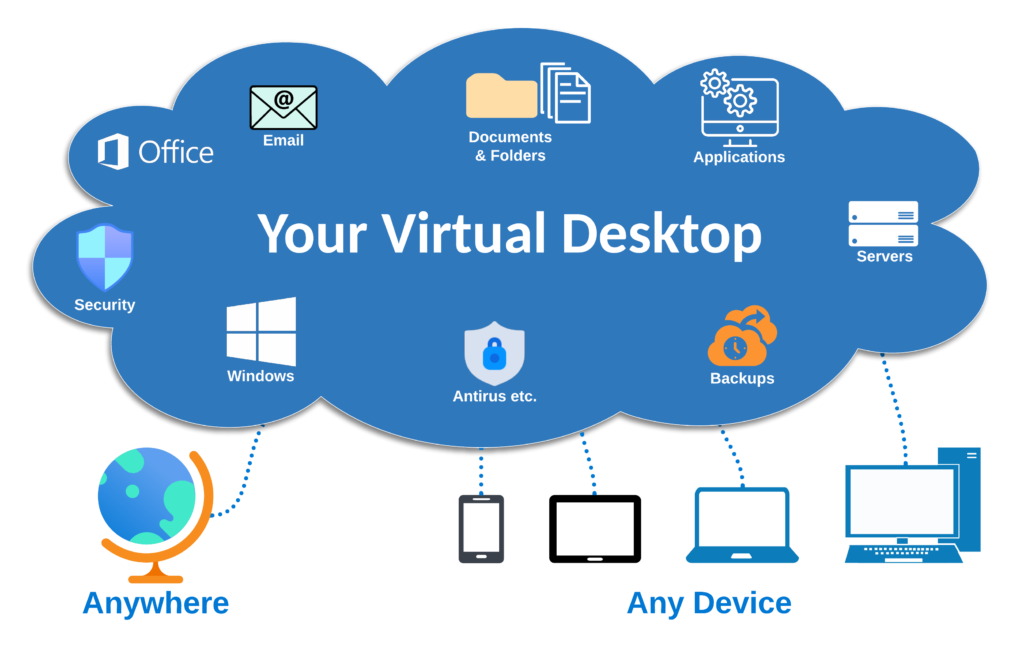So, What is VDI Hosting?
VDI is like your desktop but you access it from the cloud instead of your local computer, its your “Desktop in the Cloud” (Mac, PC or Tablet)
Let me explain…
Virtual desktop infrastructure (VDI) is a technology that enables users to access a virtual desktop and its applications from any device, anywhere, at any time. In the past, VDI has often been seen as a solution primarily for large enterprises. However, with the increasing popularity of remote work and the rise of cloud computing, VDI is becoming a viable option for businesses of all sizes.
With the VDI environment you can have all of the desktop applications that you currently use in a virtual desktop infrastructure (VDI) environment. The virtual desktop is a full-fledged desktop that can run any application that can run on a physical desktop. This includes popular applications such as Microsoft Office, Adobe Creative Suite, and other productivity and business applications.
In a VDI environment, the applications are installed on a central server and are delivered to the user’s virtual desktop through a remote connection. The user can access their virtual desktop and applications from any device with an internet connection, and the experience is similar to using a physical desktop

There are several reasons why a company might consider moving to VDI:
- Improved security: VDI can improve security by centralizing control of data and applications and enabling administrators to monitor and control user access to them. This can help prevent data leaks and unauthorized access to sensitive information.
- Increased productivity: VDI can enable users to access their virtual desktops and applications from any device, anywhere, at any time. This can increase productivity by enabling users to work more flexibly and efficiently.
- Reduced hardware and maintenance costs: With VDI, the company only needs to maintain and upgrade a central server, rather than individual desktops. This can save money on hardware and maintenance costs.
- Enhanced disaster recovery: VDI can help companies recover from disasters more quickly and efficiently by enabling users to access their virtual desktops and applications from any location.
- Improved compliance: VDI can help companies meet regulatory and compliance requirements by enabling administrators to monitor and control access to sensitive data and applications.
- Enhanced user experience: VDI can improve the user experience by enabling users to access their virtual desktops and applications from any device, anywhere, at any time. This can be especially useful for remote workers.
- Improved team collaboration: VDI can make it easier for teams to collaborate and work together, regardless of their location. With VDI, team members can access the same virtual desktop and applications from any device, anywhere, at any time. This can improve communication and collaboration, and make it easier for teams to work together on projects, even if they are in different locations. By enabling teams to access the same resources, VDI can help businesses work more efficiently and effectively, and can support greater collaboration between team members.
Overall, VDI can provide numerous benefits for companies, including improved security, increased productivity, reduced hardware and maintenance costs, enhanced disaster recovery, improved compliance, and an enhanced user experience. As the trend towards remote work continues to grow, VDI is likely to become an increasingly popular option for businesses looking to improve their IT infrastructure.